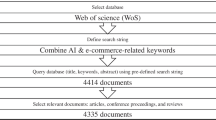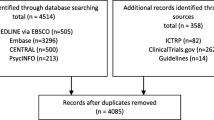Abstract
The paper focuses on the practice of using lists in the digitized society, where we do not only deal with lists on the web, but since a few decades tend to observe objects and services in general in the form of evaluative orderings like ratings and rankings. The difference and the relationship between lists, ratings and rankings are illustrated and discussed in historical perspective. In a second step, the paper specifically addresses the web and digital data processing, asking why lists are spreading right now, especially in the last three decades. It analyses the relationship of the form of the list with the web and with algorithms, which are its central tools of information processing.
Zusammenfassung
Der Beitrag untersucht die Verwendungspraxis von Listen in der digitalisierten Gesellschaft, in der wir nicht nur mit Listen im Internet umgehen, sondern seit einigen Jahrzehnten dazu neigen, Objekte und Leistungen in der Form von evaluativen Ordnungen wie Ratings und Rankings zu beobachten. Der Unterschied und die Beziehung zwischen Listen, Ratings und Ranglisten werden in historischer Perspektive dargestellt und diskutiert. In einem zweiten Schritt befasst sich der Beitrag speziell mit dem Internet und der digitalen Datenverarbeitung und fragt, warum Listen gerade in den letzten drei Jahrzehnten Verbreitung gefunden haben. Er behandelt die Beziehung der Form der Liste zum Internet und zu Algorithmen, die die primären Mittel der Informationsverarbeitung im Internet sind.
Similar content being viewed by others
References
Boellstorff, Tom: »Making big data, in theory«. In: First Monday 18 (2013), Issue 10 (special issue).
Borges, Jorge Luis: »The Analytical Language of John Wilkins«. In: Borges, Jorge Luis: Other inquisitions 1937–1952. Austin 1993, pp. 101–105.
Bottéro, Jean: »Sintomi, segni, scritture nell’antica Mesopotamia«. In: Vernant, Jean-Pierre et al.: Divination et Rationalité. Paris 1974, pp. 73–214. (It. tr. Divinazione e razionalità. Torino 1982.)
Cooley, Alexander/Snyder, Jack L. (Eds.): Ranking the World. Grading States as a Tool of Global Governance. Cambridge (Mass.) 2015.
Davis, Martin: Computability and unsolvability. New York/Toronto/London 1958.
De Mauro, Tullio: Linguistica elementare. Bari 1998.
Eco, Umberto: Vertigine della lista. Milano 2009.
Espeland, Wendy/Sauders, Michael: »Rankings and Reactivity. How Public Measures Recreate Social Worlds«. In: American Journal of Sociology 113 (2007), Issue 1, pp. 1–40.
Esposito, Elena: Artificial Communication? The Production of Contingency by Algorithms. Manuscript 2017.
Esposito, Elena/Stark, David: What’s Observed in a Rating? Rankings as Orientation in the Face of Uncertainty. Manuscript 2017.
Goody, Jack: The Domestication of the Savage Mind. Cambridge 1977.
Grossman, Lev: »How Computers Know What We Want – Before We Do«. In: Time (27.5.2010). In: http://content.time.com/time/magazine/article/0,9171,1992403,00.html.
Hammond, Kris: Practical Artificial Intelligence for Dummies. Hoboken (NJ) 2015.
Havelock, Eric Alfred: Preface to Plato. Cambridge (Mass.) 1963.
Havelock, Eric Alfred: Origins of Western Literacy. Toronto 1976.
Hornby, Nick: High fidelity. London 1995.
Hunger, Hermann/Archi, Alfonso: »Vicino Oriente. Liste lessicali e tassonomie«. In: http://www.treccani.it/enciclopedia/vicino-oriente-antico-liste-lessicali-e-tassonomie_%28Storia-della-Scienza%29/, Storia della Scienza 2001.
Karpik, Lucien: »La Guide rouge Michelin«. In: Sociologie du Travail 42 (2000), Issue 3, pp. 369–389.
Karpik, Lucien: L’économie des singularités. Paris 2007.
Kitchin, Rob: »Big Data, new epistemologies and paradigm shifts«. In: Big Data and Society 1 (2014), Issue 1, pp. 1–12.
Langohr, Herwig M./Langohr, Patricia T.: The Rating Agencies and their Credit Ratings. What They Are, How They Work, and Why They Are Relevant. Chichester 2008.
Langville, Amy N./Meyer, Carl D.: Google’s PageRank and Beyond: The Science of Search Engine Rankings. Princeton/Oxford 2006.
Levich, Richard M./Majnoni, Giovanni/Reinhart, Carmen M.: Ratings, Rating Agencies and the Global Financial System. New York 2002.
Luria, Aleksandr R.: Cognitive Development. Its Cultural and Social Foundations. Cambridge (Mass.) 1976.
Mennicken, Andrea: »›Too Big to Fail and Too Big to Succeed‹: Accounting and Privatisation in the Prison Service of England and Wales«. In: Financial Accountability & Management 29 (2013), Issue 2, pp. 206–226.
Mennicken, Andrea: Numbers and Lists: Ratings and Rankings in Healthcare and the Correctional Services. London 2016.
Musselin, Cristine: La grande course des universités. Paris 2017.
Ong, Walter J.: Orality and Literacy. The Technologizing of the Word. New York 1982.
Oring, Elliott: »Jokes on the Internet: Listing towards Lists«. In: Trevor J. Blank (Ed.): Folk Culture in the Digital Age: The Emergent Dynamics of Human Interaction. Boulder 2012, pp. 98–118.
Poole, Steven: »Top nine things you need to know about listicles«. In: The Guardian (12.11.2013). In: https://www.theguardian.com/books/2013/nov/12/listicles-articles-written-lists-steven-poole.
Rogers, Richard: Digital Methods. Cambridge (Mass.)/London 2013.
Scott, Susan G./Orlikowski, Wanda J.: »Reconfiguring relations of accountability: Materialization of social media in the travel sector«. In: Accounting, Organizations and Society 37 (2012), Issue 1, pp. 26–40.
Silver, David/Hassabis, Demis: »AlphaGo: Mastering the ancient game of Go with Machine Learning«. In: https://research.googleblog.com/2016/01/alphago-mastering-ancient-game-of-go.html (27.1.2016).
Stuart, Debra L.: »Reputational rankings: Background and development«. In: New Directions for Institutional Research 88 (1995), pp. 13–20.
Vaidhyanathan, Siva: The Googlization of Everything (And Why we Should Worry). Berkley/Los Angeles 2011.
Vandermeersch, Léon: »Dalla tartaruga all’achillea (Cina)«. In: Jean-Pierre Vernant et al.: Divination et Rationalité. Paris 1974, pp. 27–52. (It. tr. Divinazione e razionalità. Torino 1982.)
Author information
Authors and Affiliations
Corresponding author
Rights and permissions
About this article
Cite this article
Esposito, E. Organizing without Understanding. Z Literaturwiss Linguistik 47, 351–359 (2017). https://doi.org/10.1007/s41244-017-0064-4
Published:
Issue Date:
DOI: https://doi.org/10.1007/s41244-017-0064-4




